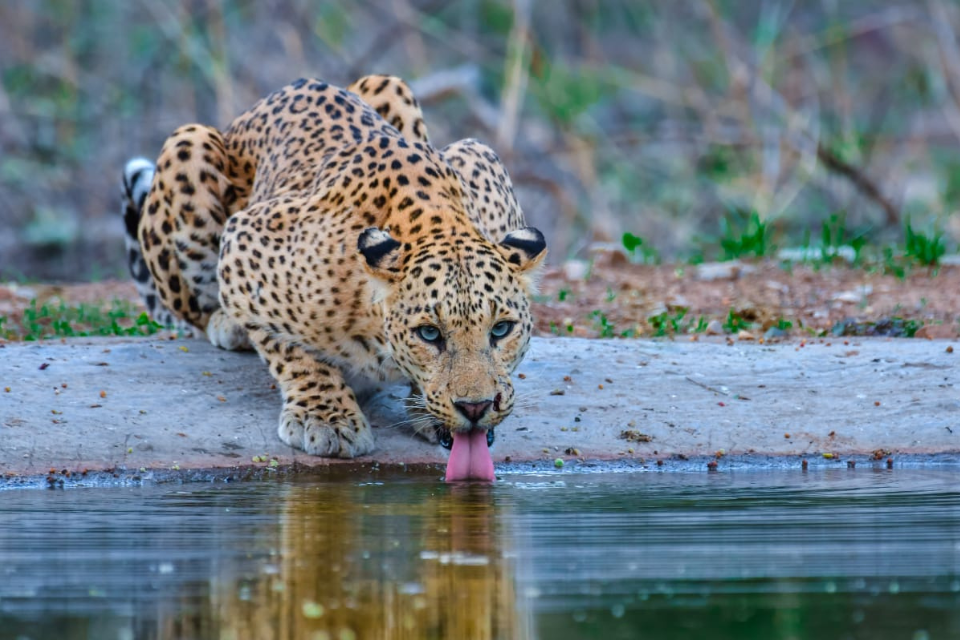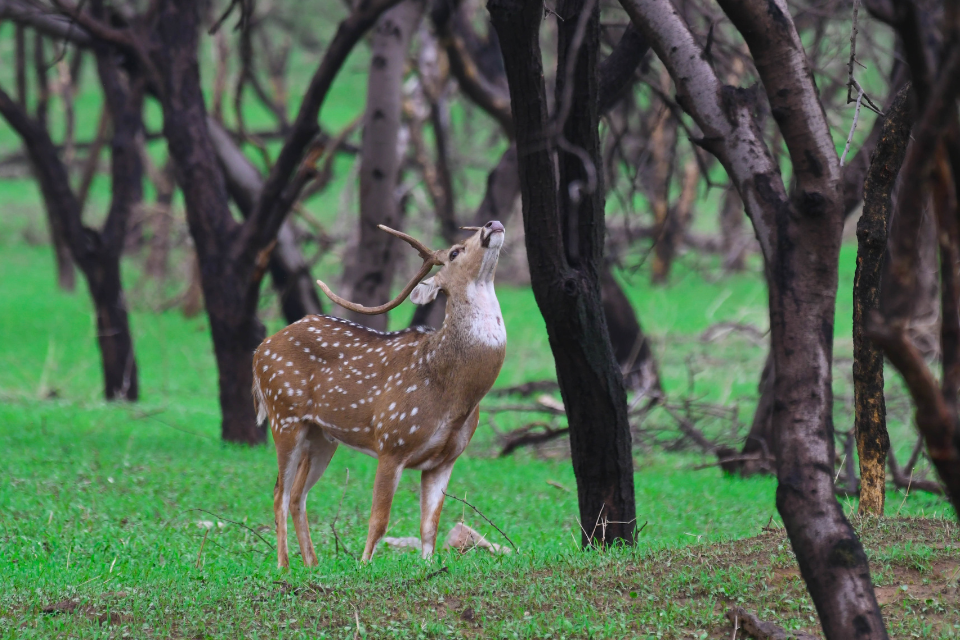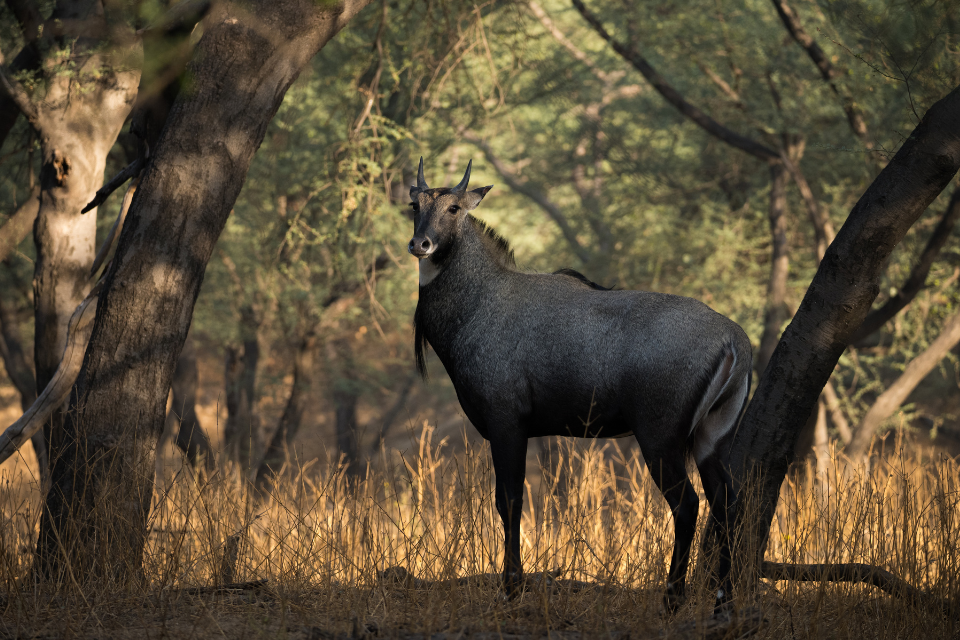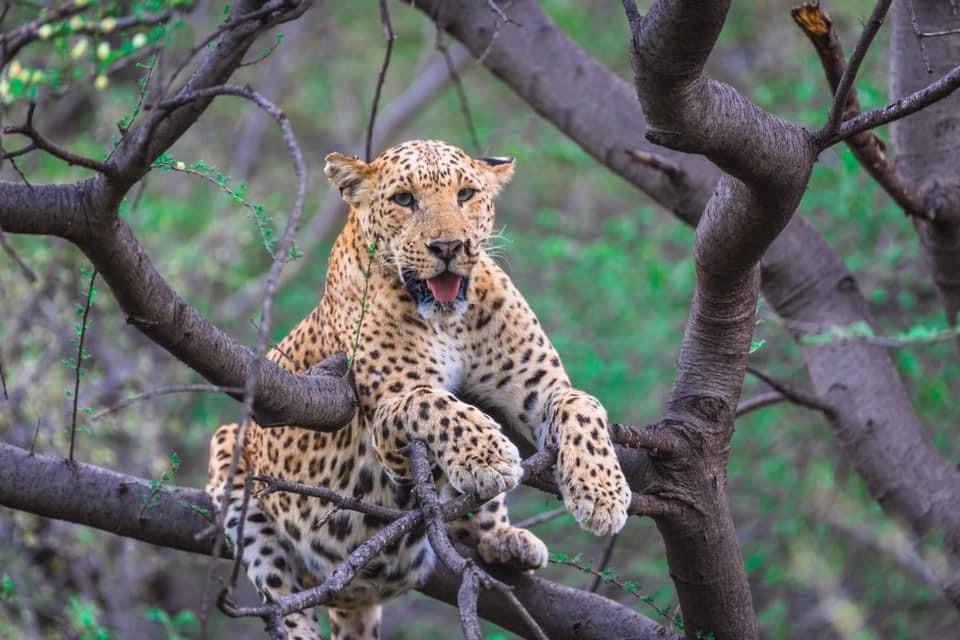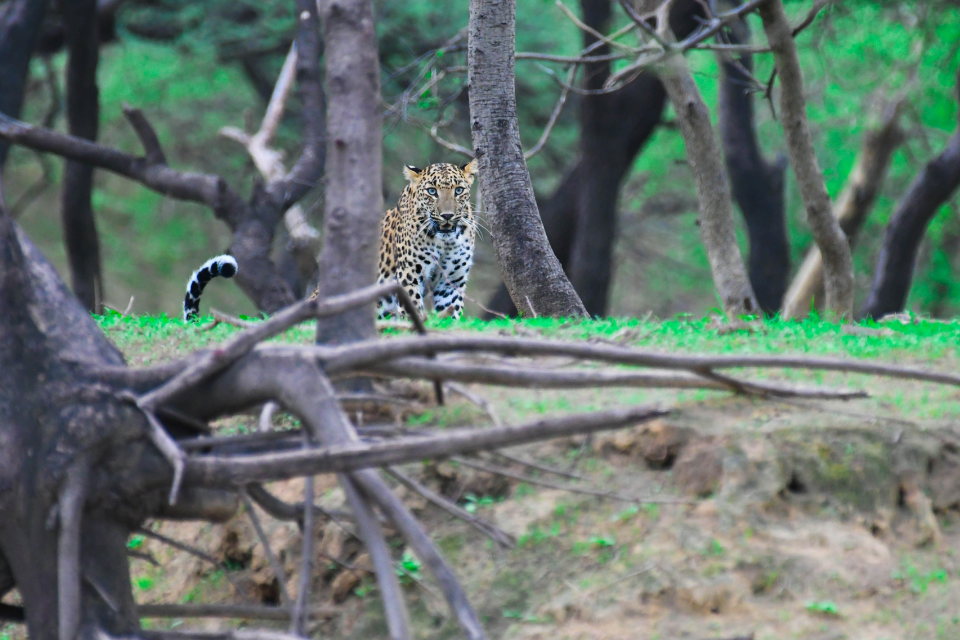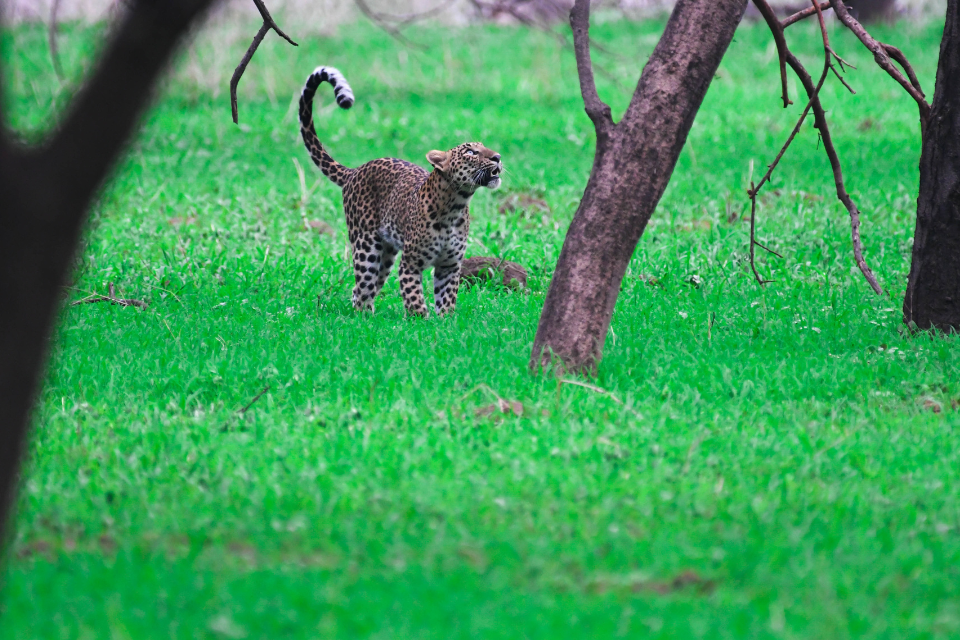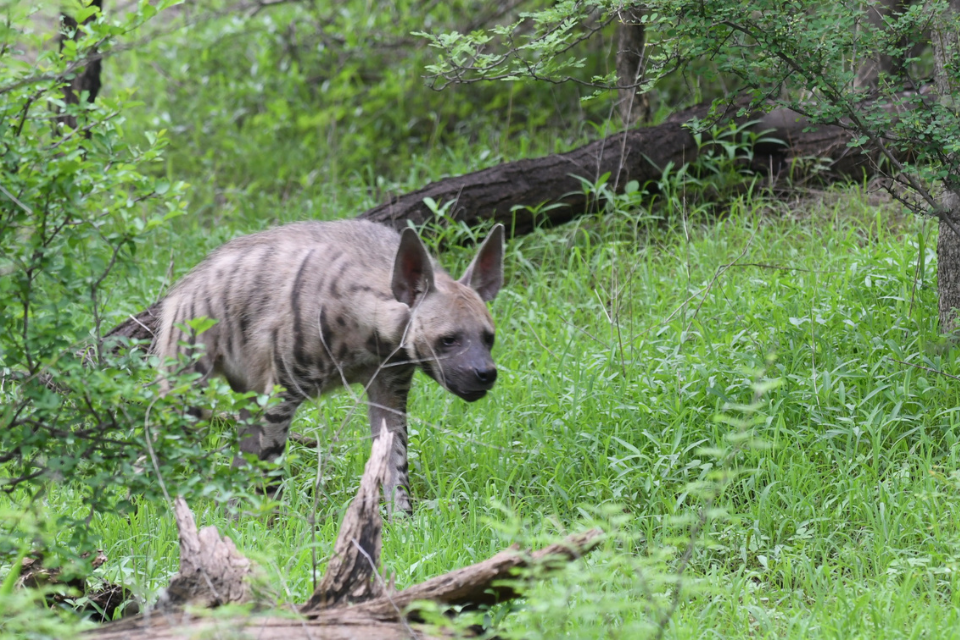- November 29, 2024
Jhalana Forest: A Must-Visit Destination for Eco-Tourism Enthusiasts
Eco-tourism is about experiencing nature responsibly, supporting conservation, and fostering local community well-being. Jhalana Forest Reserve, located on the outskirts of Jaipur, Rajasthan, embodies the essence of eco-tourism. With its unique urban location, thriving wildlife, and sustainable tourism model, Jhalana has become a haven for eco-conscious travelers seeking an enriching and low-impact travel experience.
Why Jhalana is Perfect for Eco-Tourism
- Proximity to Urban Areas:
- Jhalana is just a short drive from Jaipur city, making it an easily accessible eco-tourism destination.
- Diverse Wildlife:
- Home to over 30 leopards, striped hyenas, blue bulls, jackals, and more than 150 bird species, Jhalana offers unparalleled opportunities for wildlife enthusiasts.
- Sustainable Tourism Practices:
- With limited safari slots, strict eco-tourism guidelines, and a focus on conservation, Jhalana ensures minimal impact on its ecosystem.
- Blend of Nature and Culture:
- Ancient temples within the forest and its rich biodiversity make Jhalana a unique destination that connects visitors with both spirituality and nature.

Eco-Tourism Activities in Jhalana
- Leopard Safaris:
- Explore the forest in an open jeep guided by trained naturalists. Early morning and evening safaris provide the best chances to spot leopards and other wildlife.
- Birdwatching:
- With a wide variety of resident and migratory birds, Jhalana is a paradise for bird enthusiasts. Don’t forget your binoculars!
- Nature Walks:
- Guided trails offer an up-close view of Jhalana’s flora and smaller fauna while providing insights into the ecosystem.
- Photography Tours:
- Jhalana’s stunning landscapes and vibrant wildlife make it a dream destination for photographers.
- Temple Visits:
- Discover the spiritual side of Jhalana by visiting ancient temples like the Kali Mata and Shiv Mandir, which blend seamlessly with the forest environment.
How Jhalana Promotes Eco-Tourism
- Sustainable Safari Practices:
- Regulated vehicle entry and eco-friendly guidelines ensure wildlife is not disturbed.
- Community Involvement:
- Local residents are employed as guides, drivers, and eco-tourism staff, fostering economic development and conservation awareness.
- Conservation Funding:
- Revenue generated from safaris is reinvested in habitat restoration, wildlife monitoring, and conflict mitigation programs.
- Education and Awareness:
- Informative sessions by guides and signage around the reserve educate visitors about the importance of conserving Jhalana’s biodiversity.
Tips for Eco-Conscious Visitors
- Travel Light:
- Pack reusable water bottles, eco-friendly snacks, and minimal luggage to reduce waste.
- Respect Wildlife:
- Maintain silence, stay on designated trails, and avoid using flash photography to minimize disturbance.
- Follow Safari Guidelines:
- Trust your guide’s expertise and adhere to the rules for a safe and eco-friendly experience.
- Support Local Businesses:
- Purchase handicrafts, snacks, or other items from local vendors to contribute to the community.
Best Time to Visit Jhalana for Eco-Tourism
- Winter (October to February):
- Pleasant weather, active wildlife, and a variety of migratory birds make this the best season for eco-tourism activities.
- Summer (March to June):
- Early morning safaris offer excellent chances of spotting leopards near waterholes, despite the heat.
- Monsoon (July to September):
- Lush greenery and rejuvenated landscapes provide a picturesque setting for nature lovers.
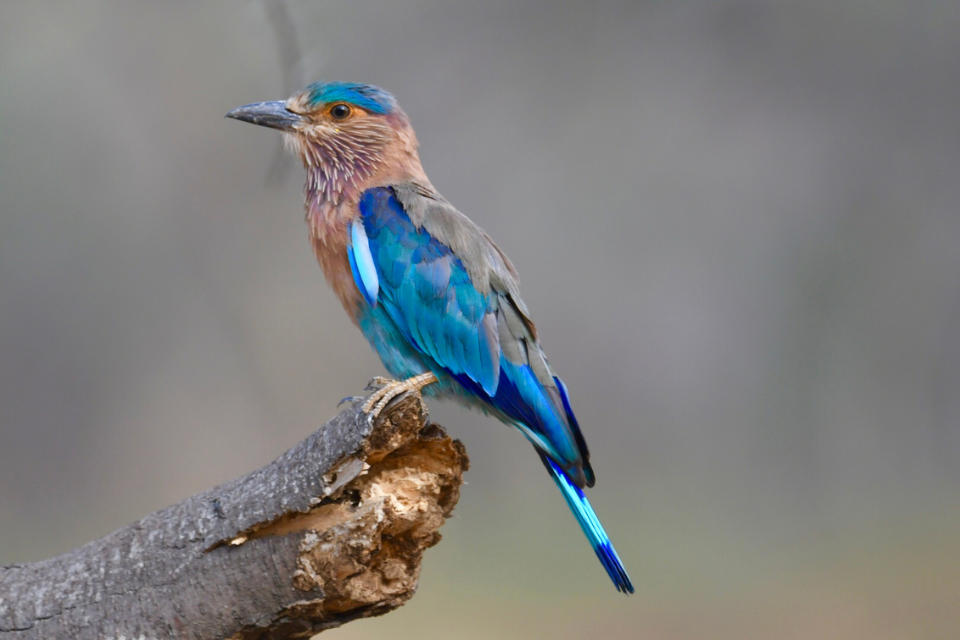
Eco-Tourism’s Impact on Jhalana
- Wildlife Conservation:
- Sustainable tourism supports initiatives like habitat restoration, waterhole maintenance, and wildlife monitoring.
- Local Empowerment:
- By creating jobs and involving locals in conservation, eco-tourism enhances community livelihoods and strengthens ties to the forest.
- Raising Awareness:
- Visitors leave Jhalana with a deeper understanding of urban wildlife conservation, inspiring responsible tourism practices elsewhere.
Why Eco-Tourism Enthusiasts Love Jhalana
- A Unique Urban Experience:
- Jhalana is one of the few reserves located within city limits, offering the thrill of a safari without the need for long travel.
- Abundant Wildlife Sightings:
- The high density of leopards and other animals ensures rewarding safaris for eco-tourists.
- Tranquility and Serenity:
- The peaceful environment of Jhalana is perfect for reconnecting with nature and escaping city life.
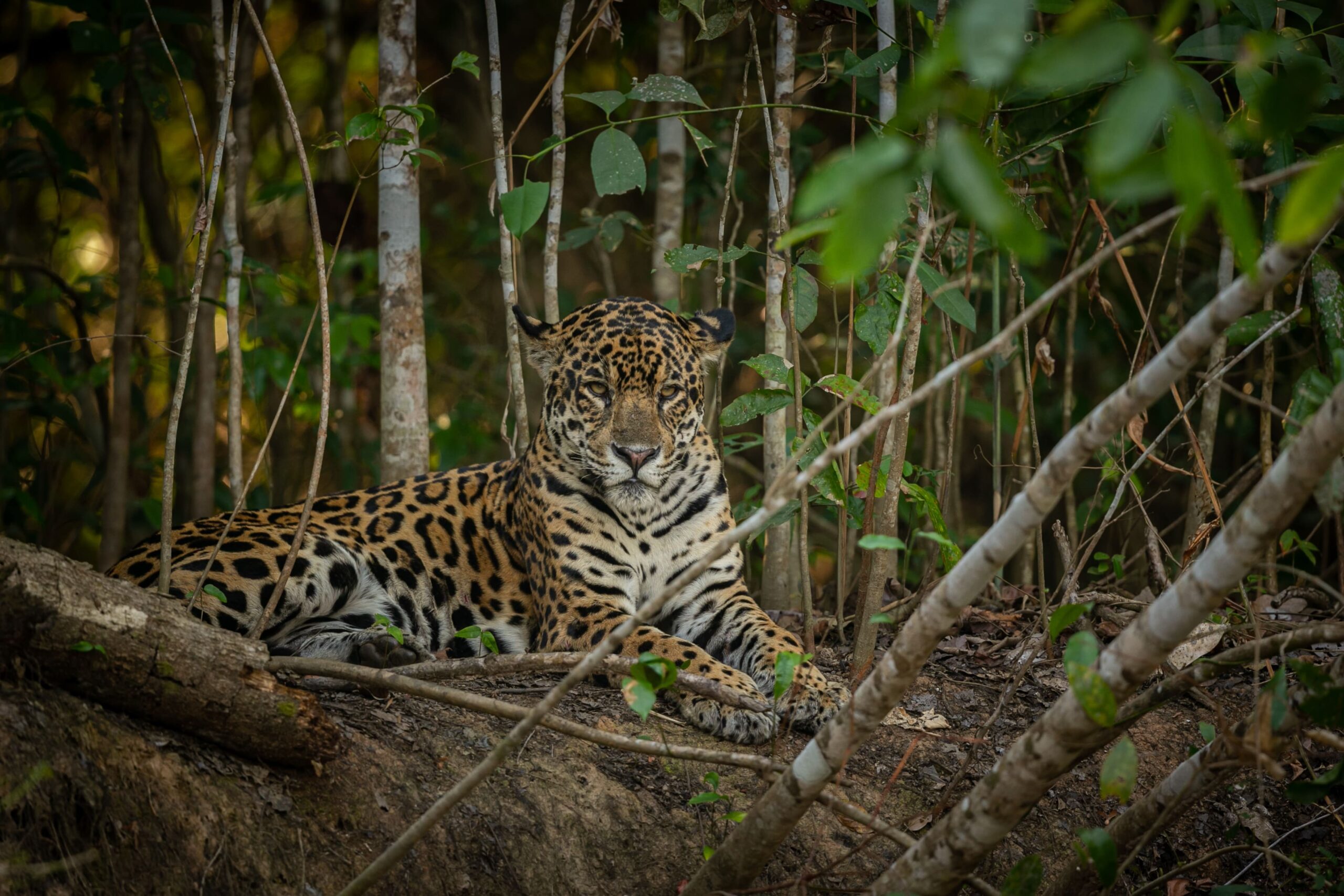
Conclusion
Jhalana Forest Reserve is a shining example of eco-tourism in India, blending wildlife conservation, community development, and visitor education. For eco-tourism enthusiasts, Jhalana offers an unforgettable experience that goes beyond the thrill of wildlife sightings, fostering a deeper connection with nature and a commitment to preserving it. Whether you’re a seasoned traveler or a first-time visitor, Jhalana promises an enriching adventure that aligns with your eco-conscious values.
Disclaimer All images used in this blog are either sourced from public domain or credited to their respective owners. If you are the copyright holder of any image and wish to request its removal or proper attribution, please contact us at [email protected]



